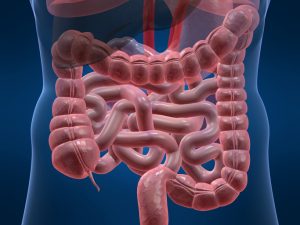 Toxic megacolon is a condition of a malfunctioning large intestine. Namely, the term megacolon implies the atypical dilation of the colon, while “toxic” indicates the severity of the problem.
Toxic megacolon is a condition of a malfunctioning large intestine. Namely, the term megacolon implies the atypical dilation of the colon, while “toxic” indicates the severity of the problem.
Often a complication of inflammatory bowel disease, toxic megacolon is a rare and life-threatening condition in which the large intestine quickly widens within a few days.
Causes of toxic megacolon
Advertisement
The primary cause of toxic megacolon is inflammatory bowel disease (IBD), which is associated with swelling and irritation in the large intestine and other parts of the digestive tract. In IBD, the colon can expand, dilate, and distend. When this occurs, it is no longer able to remove gas or feces from the body. The buildup of gas and feces eventually cause the large intestine to rupture.
At this point, the condition becomes quite dangerous. As the large intestine ruptures, bacteria are released in the body, leading to infection and death.
Other types of megacolon, which are not a result of infection or inflammation, are pseudo-obstruction megacolon, colonic ileus megacolon, and congenital colonic dilation.
Symptoms and risk factors for toxic megacolon
Symptoms of toxic megacolon include:
- Abdominal pain
- Bloating of the abdomen
- Abdominal tenderness
- Fever
- Rapid heart rate
- Shock
- Bloody or profuse diarrhea
- Painful bowel movements
The biggest risk factor for toxic megacolon is having inflammatory bowel disease such as Crohn’s disease or ulcerative colitis. Other risk factors include an infection of the colon, ischemia (low blood flow to the colon), and, in rare cases, colon cancer.
Treatment options for toxic megacolon
Advertisement
You should seek out medical attention as soon as you start experiencing symptoms related to toxic megacolon. Your doctor will run tests to confirm diagnosis and also ask if you have a history of inflammatory bowel disease.
Tests to help diagnose toxic megacolon include abdominal X-ray, CT scan, and blood work.
Toxic megacolon is commonly treated with surgery, which may involve repairing the colon or removing the colon. Antibiotics will be prescribed post-surgery to ward off any infection and other complications.
